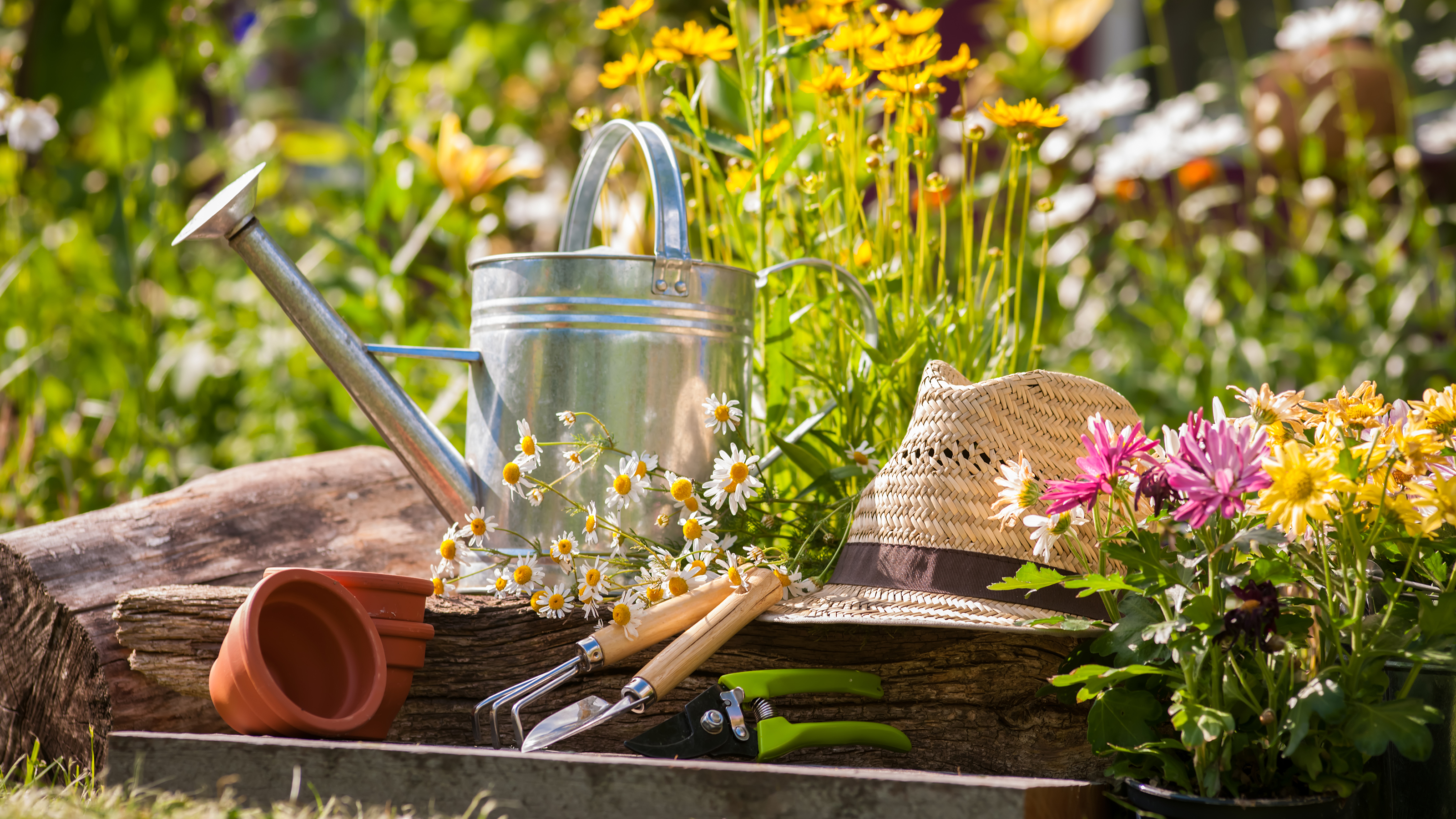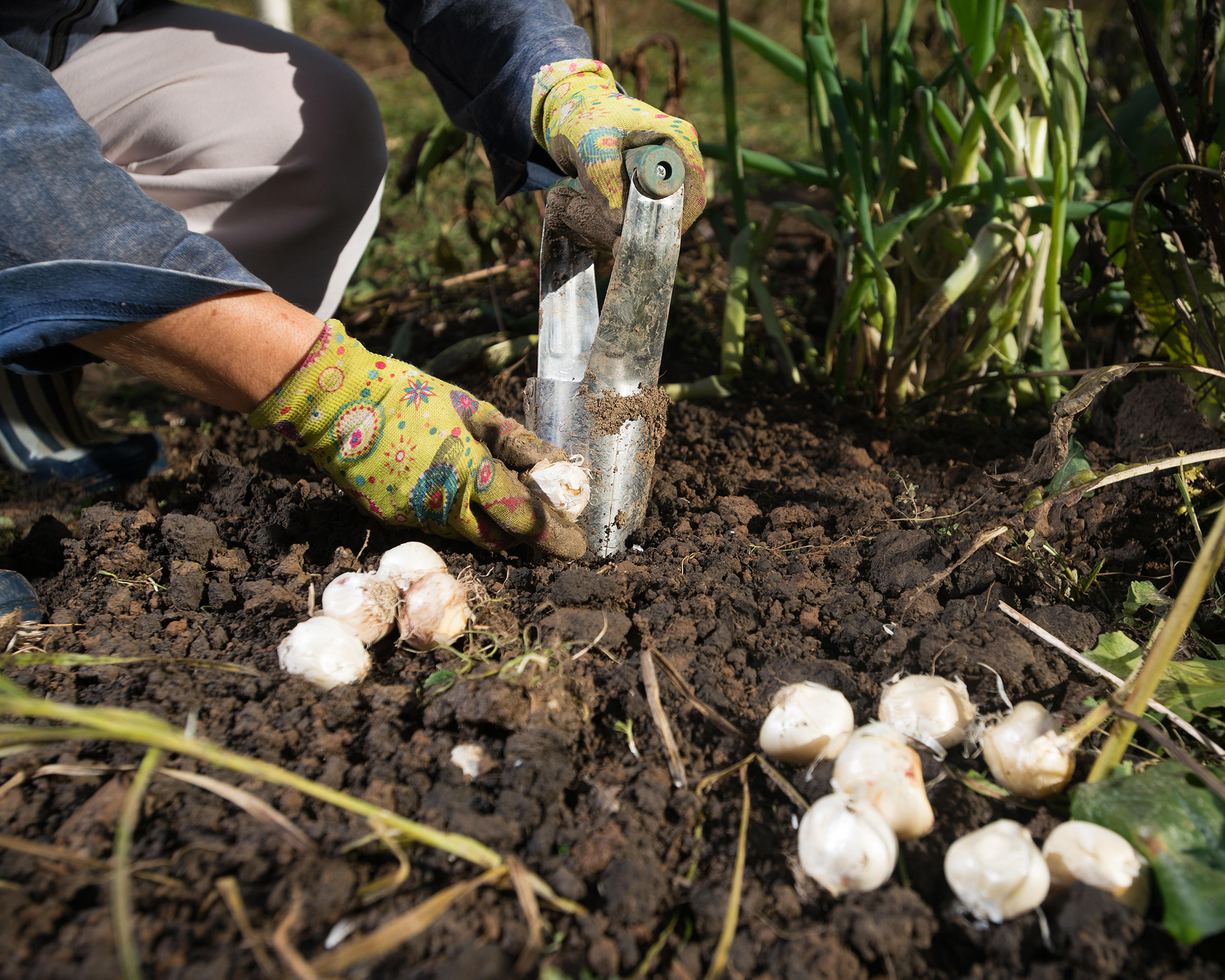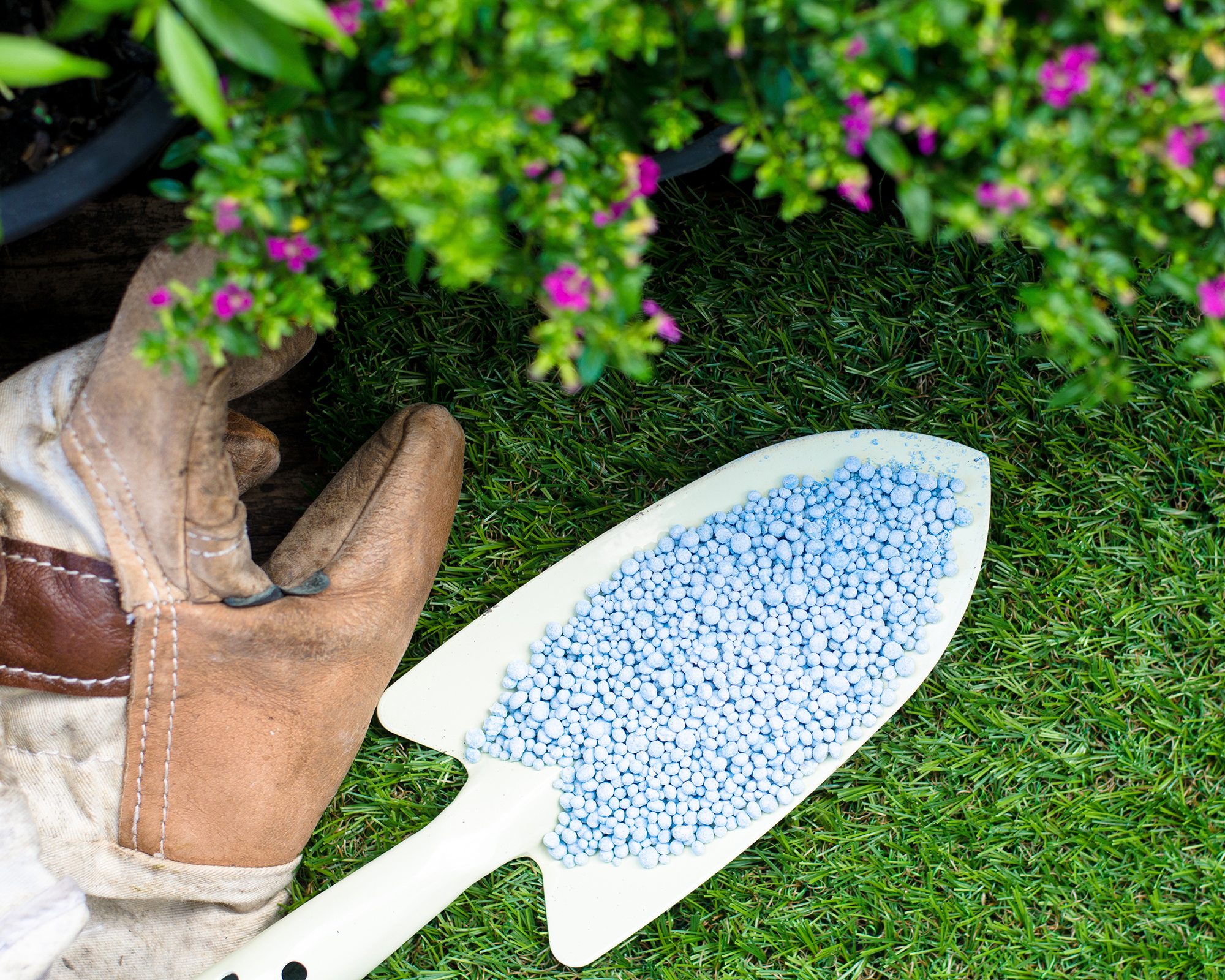7 Things Expert Gardeners Never Buy – So Save Your Money
Don’t invest in gardening products that you don’t really need. Experts reveal the equipment and supplies they think are unnecessary


Sign up for the Gardening Know How newsletter today and receive a free copy of our e-book "How to Grow Delicious Tomatoes".
You are now subscribed
Your newsletter sign-up was successful
We are all looking for ways to maximize results in the garden and reduce the burden of chores. If there is a gadget that can cut down on labor, or a miracle product that will improve growing rates, then why not invest?
However, while there are some essential beginner gardener tools, all too often gardeners sink money into solutions that are unnecessary. Worse, they sometimes have a negative impact on the environment.
We asked gardening experts to tell us the products they never buy – so save your money and follow their lead.
1. Expensive automated watering systems
Watering the garden is one of the most basic things you can do to take care of it. Yet, it has become one of the most overcomplicated, expensive aspects. Gardeners are often made to feel as though they need to invest in an irrigation system in order to get the best out of their yards.
Automated watering systems range from a basic sprinkler system connected to a timer – which can be useful when you are going away – to digital monitors that link to your smartphone and notify you when specific plants need watering.
However, hi-tech systems take away too much of the gardener’s ability to relate to their garden, and understand its watering needs.
‘Many expert gardeners prefer the control and connection that come with hand watering or simple drip irrigation systems over costly, high-tech automated systems,’ says Tom Su, owner of Lawn Edging.
Sign up for the Gardening Know How newsletter today and receive a free copy of our e-book "How to Grow Delicious Tomatoes".

2. Single-function tools
There are so many gimmicky, single-function tools available that claim to make gardening tasks easier, but most are unnecessary.
‘There are better solutions to accomplish the same tasks,’ says Keegan Nesvacil, co-founder of Woodland Tools Co.
‘Bulb planters are a prime example. It is hard to force them deep into the ground and once you do and are able to capture the dirt, it can be challenging to get the dirt to come out of the bulb planter.
‘In addition, the way that most are designed can be clunky for many people to use. I would recommend using a traditional transplanter trowel or hori hori garden knife instead.’
Most expert gardeners choose to invest in better quality tools that can multitask.
‘Quality matters more than quantity in gardening. Durable, well-made tools are preferred over cheaper, less reliable alternatives that are prone to breaking,’ says Gene Caballero, co founder of GreenPal.
‘Rather than accumulating numerous specialty tools, experienced gardeners rely on a few high-quality, versatile tools like a sturdy shovel, spade, rake, and pruning shears.’
3. Chemical-heavy products
Expert gardeners know all too well the impact that chemical overuse can have on the environment.
Regular use of pesticides and herbicides has a harmful effect on beneficial insects and other wildlife. Over time it can even lead to pests, diseases and weeds becoming resistant to treatment.
However, experienced gardeners know that a low level of weeds, pests, and disease damage is completely normal, and needn’t be completely eradicated.
‘Experts often eschew chemical fertilizers, herbicides, and pesticides, opting instead for organic and natural gardening methods that are better for both the environment and the garden's ecosystem,’ says Gene.
For example, unlike commercial chemical fertilizers, organic fertilizer is typically made up of single ingredients and can be matched to your garden's unique nutritional needs. It takes experience and research to understand which solution is best for each circumstance, but that is how expertise grows.
Where chemical solutions are used, they should be limited and highly targeted.
4. Lots of plant-specific fertilizers
Container-grown plants only have a limited supply of soil to draw their nutrients from, and so require fertilizing during the growing season.
In contrast, plants grown in beds and borders don’t usually require fertilizing unless they are showing signs of nutrient deficiency, or you want to maximize yields of fruits and flowers.
However, you don’t actually need to buy specialized fertilizers for every type of plant. More important than this is to understand a plant’s nutritional needs and address these.
‘Roses are a prime example of this,’ says Tom Su. ‘They can thrive with regular compost and balanced fertilizers – experts often skip the expensive, rose-specific formulas.’
When fertilizing plants, it’s useful to understand that plants need nitrogen for leaf growth, phosphorus for healthy root growth, and potassium for fruiting.
Nitrogen is particularly important for leafy plants including green salad and vegetable crops. It is easily supplied through chicken manure pellets, which are cheap to buy.
However, too much nitrogen on fruiting plants can result in the plant putting out lots of green growth but not much fruit. So give these plants a regular dose of potassium-rich fertilizer. Tomato fertilizer is fairly inexpensive and can be used to add potassium to most fruiting plants.
In addition to these, top organic fertilizer options include bone meal, which is very useful for when plants first go into the ground as it is high in phosphorus and calcium, but low in nitrogen; fish meal is a rich source of nutrients, particularly nitrogen; and liquid seaweed is another great source of vitamins and minerals.

5. Poor quality or old compost and soil
‘The quality of soil and compost is critical in gardening,’ says Gene. ‘Expert gardeners are always cautious about using bagged soil from unknown sources, which might contain harmful pests or diseases.’
Compost or soil bought from unknown sources may also contain chemicals, ecologically unsound ingredients, building rubble, or seeds and root fragments of invasive plants.
Meanwhile, half-used bags of soil or compost left lying around in the shed for several seasons may have dried up and compacted, attracted pests, or their nutrient balance may have diminished. When starting plants from seed it’s always advisable to invest in new compost.
However, expert gardeners are not wasteful, and if they have old or used compost that has been responsibly sourced, they will find uses for it in the garden. Use it as a top dressing for lawns, as mulch for beds and borders, or simply dig it into existing soil.
If spent compost has come from containers of dead container plants then compost is unlikely to be diseased, so mix in organic material or well-rotted manure – aim for around two thirds of the original compost, to one third new matter – then it can be reused.
6. Leaf blowers
Leaf blowers – particularly gasoline-powered models – have no place in the expert gardener’s toolkit.
‘Not only are they noisy, but they are disruptive to the garden's natural ecosystem,’ says Tom.
Gasoline-powered leaf blowers pollute the air with toxic emissions, and they also potentially blow chemicals from the ground up into the air, including herbicides and pesticides.
The noise of the appliances doesn’t just disturb your neighbors’ peace and quiet, but it also causes distress for wildlife, while the power of the blower can sweep away their habitats.
‘Expert gardeners opt for a good rake or broom instead,’ adds Tom.
7. Expandable hoses
A garden hose is an essential item in the garden, but experts are wary of using expandable hoses.
‘They are appealing for their lightweight, compact designs that can be easily stored when not in use. The issue with these products is their durability,' explains Keegan.
‘As they expand and contract, the inner tube becomes weak (the same as a rubber band stretching out and the contracting back until it breaks) until they reach a point where when the water is turned back on, the pressure causes a rupture in the inner tube rendering the hose useless and forcing you to buy another.’
If you are looking for a lightweight solution, Keegan advises investing in a ½” hose rather than the traditional 5’8”. ‘A little known fact is that traditional home spigots are only ½”, so buying a 5/8” hose is actually larger than most people need.’

Melanie is an experienced gardener and has worked in homes and gardens media for over 20 years. She previously served as Editor on Period Living magazine, and worked for Homes & Gardens, Gardening Etc, Real Homes, and Homebuilding & Renovating. Melanie has spent the last few years transforming her own garden, which is constantly evolving as a work in progress. She is also a passionate organic home grower, having experimented with almost every type of vegetable at some point. In her home, Melanie tends to an extensive houseplant collection and is particularly fond of orchids.